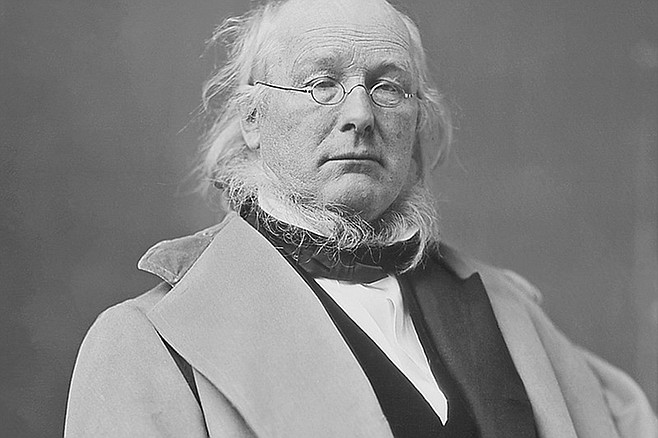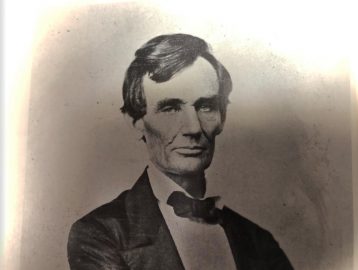SALEM, Ind. (July 24, 2019) — It was rare that Abraham Lincoln answered his haters, so abundant as they were both north and south, democrats and republicans alike. There would not have been enough hours in the days.
“If I were to try to read, much less answer, all the attacks made on me, this shop might as well be closed for any other business. I do the very best I know how – the very best I can; and I mean to keep doing so until the end. If the end brings me out all right, what’s said against me won’t amount to anything. If the end brings me out wrong, ten angels swearing I was right would make no difference.” A. Lincoln
He sure had a way with words.
And it was Lincoln who understood, perhaps more than anyone, what needed to be done to end the evil institution of slavery in America, all the while managing the Civil War during our nation’s darkest days. It was always his “oft-expressed personal wish that all men everywhere could be free.” It’s just one of the reasons why I appreciate him so much. Without Lincoln in play during the Civil War, it’s unlikely the Union would have remained whole. Without Lincoln, one could argue that the nation would have split apart into at least two countries — the United States of America (USA) and the Confederate States of America (CSA). Secession is contagious, and I could have easily envisioned other states wanting to split away from the USA and/or the CSA down the road. Back in the day, there were states on both sides threatening just that.
What Lincoln understood so well was that in order to eradicate slavery forever, the Union must be preserved first. If we lose the Union, then slavery lives on indefinitely on the North American continent. In retrospect, it seems simple to understand, but few got it the way Lincoln did back in his day. His policies seemed harsh to abolitionists because step one was to save the union regardless of slavery, which oh by the way was protected by the Constitution.

One such illustration of Lincoln’s views on the subject was derived from one of Lincoln’s critics, Horace Greeley, the esteemed and powerful founder and editor of the New York Tribune. Greeley thought Lincoln was not doing enough to free the slaves and published an angry open letter to Lincoln in the pages of his newspaper on August 20, 1862. Finally, and in a rare moment, the 16th President had had enough and uncharacteristically answered Greeley in an open letter that was published in the pages of a rival newspaper that sternly laid out the president’s policy regarding slavery. In typical Lincoln style, the President responded with the sheer force of his plain-spoken logic and reason, without the typical fire-and-brimstone rhetoric that was so often levied toward him. It worked and shut up Greeley on the subject for good. Slowly but surely, the world was beginning to understand President Abraham Lincoln.
Here is a portion of that letter…
Hon. Horace Greeley, Executive Mansion,
Dear Sir Washington, August 22, 1862.
My paramount object in this struggle is to save the Union, and it is not either to save or to destroy slavery. If I could save the Union without freeing any slave I would do it, and if I could save it by freeing all the slaves I would do it; and if I could save it by freeing some and leaving others alone I would also do that. What I do about slavery, and the colored race, I do because I believe it helps to save the Union; and what I forbear, I forbear because I do not believe it would help to save the Union. I shall do less whenever I shall believe what I am doing hurts the cause, and I shall do more whenever I shall believe doing more will help the cause. I shall try to correct errors when shown to be errors; and I shall adopt new views so fast as they shall appear to be true views.I have here stated my purpose according to my view of officially duty; and I intend no modification of my oft-expressed personal wish that all men everywhere could be free.
Yours,
A. Lincoln
What may seem harsh by today’s standards — and so easily taken out of context — in fact turned out to be brilliant in the end. It’s worth noting here and now that Lincoln saved the Union as step 1. Step 2: he orchestrated the passage of the 13th Amendment, eradicating slavery forever in America. Step 2 could not have come without Step 1. Fortunately, he understood that. Well done Mr. President.
Don Radebaugh
Find the History Mystery Man on Facebook and YouTube.

